The winery Avenue Ernest Vallé
“ An artisanal, traditional wine, exclusively made at the property ”
"From the vine stock to the flute of Champagne", the production of the wine is artisanal, traditional and exclusively carried out on the property.This is the guarantee of constant quality for the Champagne ELODIE D. cuvées, resulting from this know-how of Récoltant-Manipulant (RM).
The pressing is carried out as close as possible to the vines, therefore on the Écueil site, in order to preserve the quality of the berries. After transporting the musts, vinification takes place on the Épernay site, Avenue Ernest Vallé.
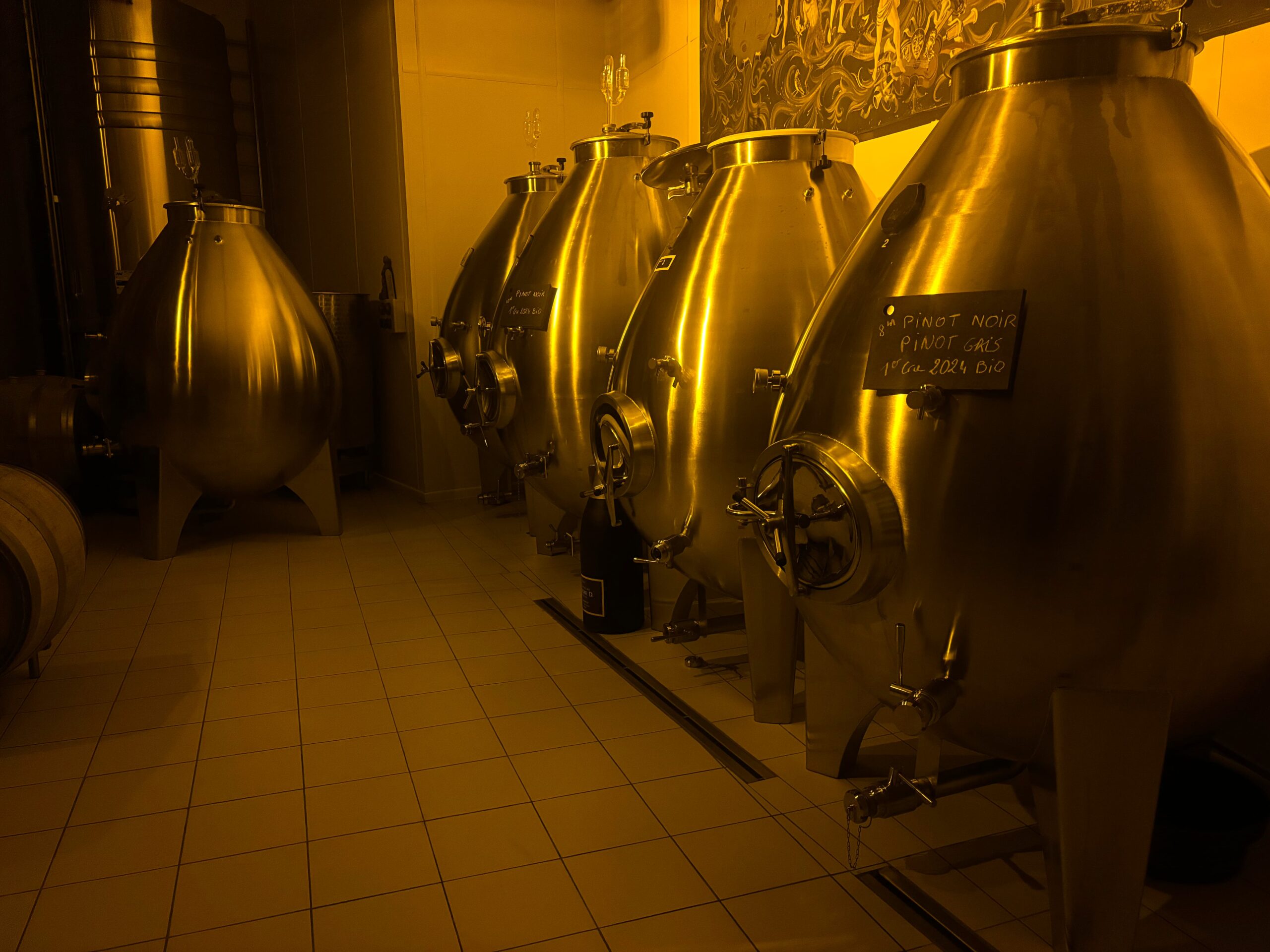
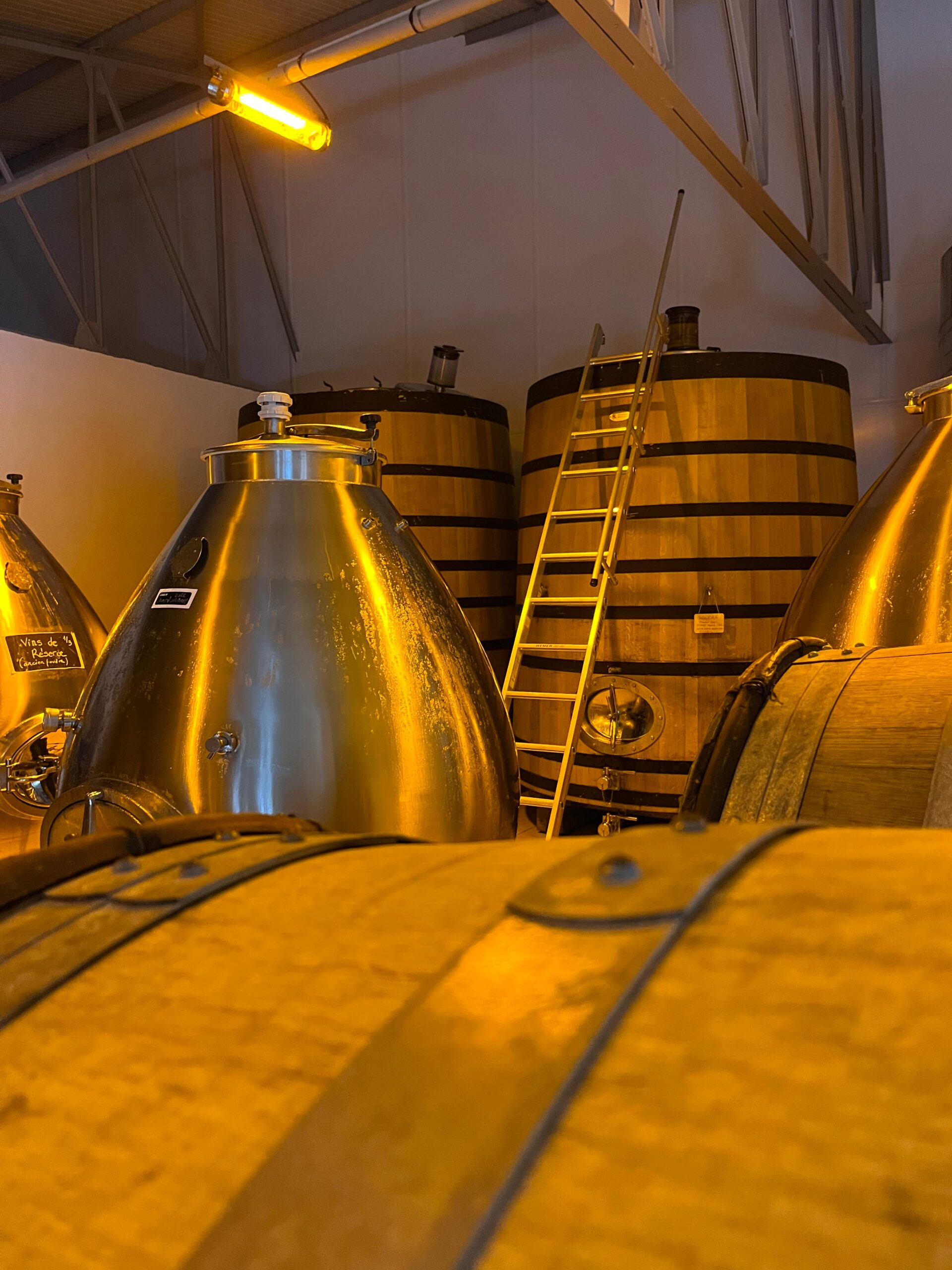
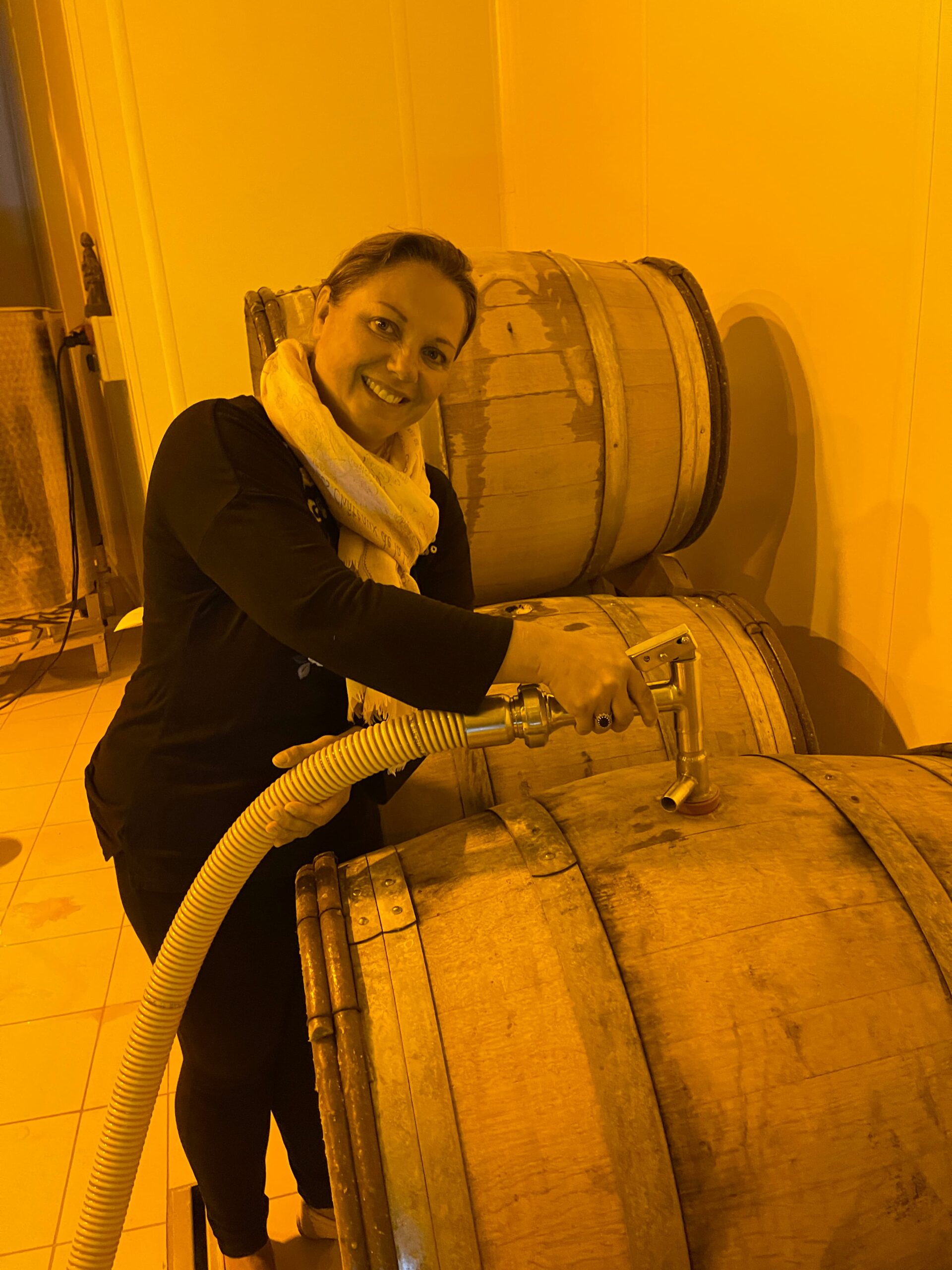
My winery
My recent and functional vat room houses different containers for the first fermentation and aging of the wines. For the fermentation and vinification of my wines, I also chose to return to oak barrels in 2004 by buying Burgundy barrels of several wines of 228 litres. In 2008, I decided to have barrels made with oak from my own wood located in the Montagne de Reims, in Écueil, at a place called “La Vovette”. This wood is managed in agreement between the Regional Park of the Montagne de Reims and the ONF. The minimum diameter of the trunk had to be 80cm. Thus, it was chosen to cut down four oak trees over 120 years old.
After the first fermentation in enamelled vats and oak barrels, I taste the still wines from January of the year following the harvest. This operation is done vat by vat, barrel by barrel. It is renewed regularly in order to study the evolution of the wines of the year and the reserve wines kept in large wooden vats of 72 hl – 7,200 liters.
The aging of the clear wines of the year can last from 6 to 18 months, depending on the evolution of the wines through the different containers of the domain: ovoid vats, new oak barrels or barrels of several wines, oak casks, stainless steel tanks.
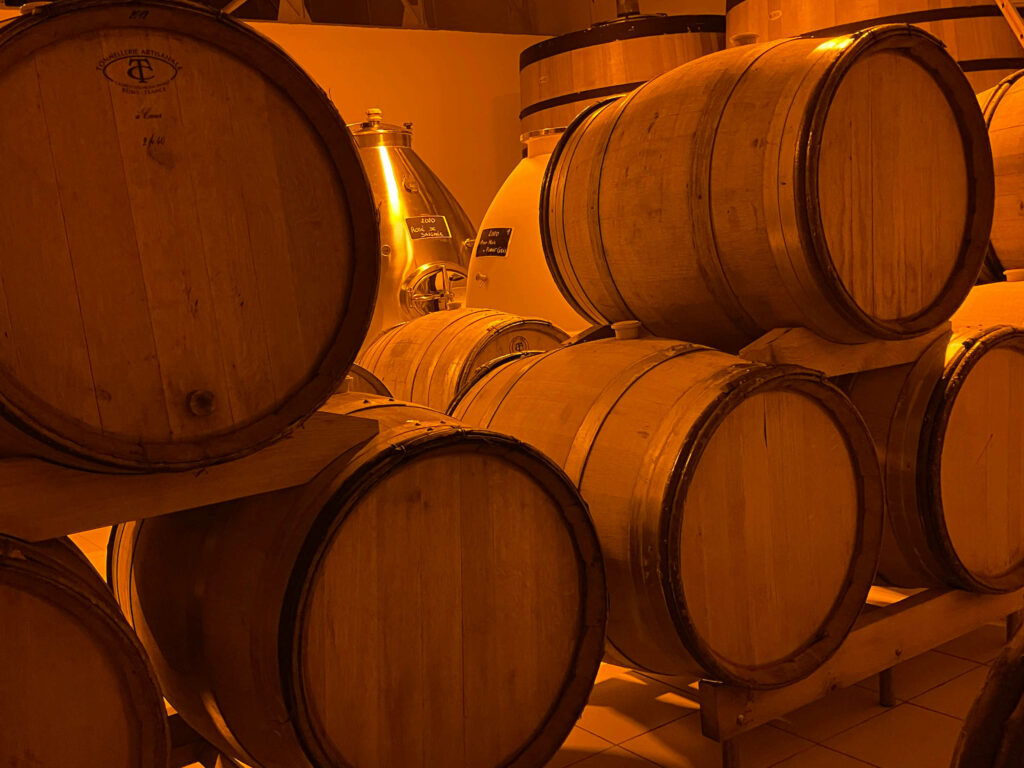
Blend or Parcel?
It is then the stage of blending the base wines (grape varieties, years) or the conservation of a single plot in vintage such as Belle Âme, Résurgence and Pinot Gris des Garennes, then bottling.
The work in the cellars is the most artisanal and the least interventionist possible. In particular, I practice cooling the wines contained in my barrels in a natural way during the winter cold.

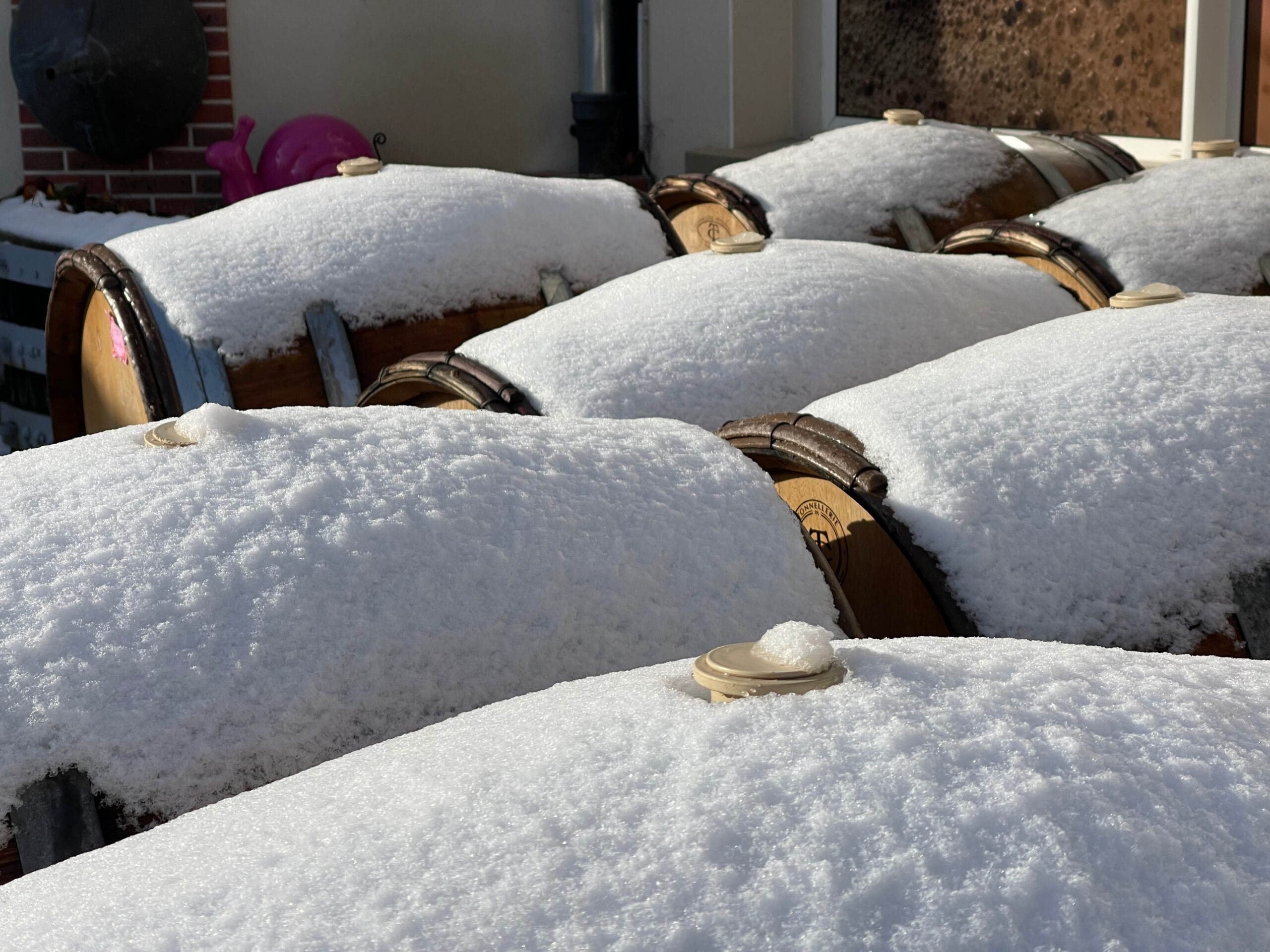
Follow us
